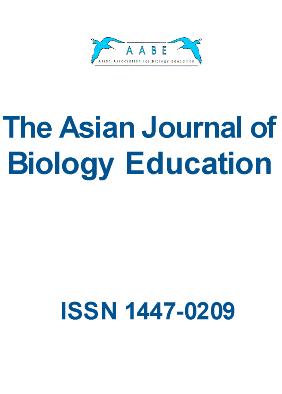The present Japanese national curriculum standard, the Course of Study (CS), for upper secondary schools was announced in 2009 by the Ministry of Education, Culture, Sports, Science and Technology, Japan (MEXT). The mathematics and science curricula are being enforced in upper secondary schools from 2012. In the present CS, biology-related subjects for upper secondary schools are “Basic Biology” (biology for all, 2-credit) and “Advanced Biology”(biology for interested students, 4-credit). In 2017, about 95% of students are taking Basic Biology, and 22% of students are taking Advanced Biology. “Basic Biology” is composed of three units: (1) Organisms and Genes, (2) Maintenance of Internal Environment, and (3) Biodiversity and Ecosystems. The key words for Basic Biology are DNA, Health and Environment. In addition, “Basic Biology” emphasizes concepts of Unity and Diversity with relation to Evolution. “Advanced Biology” is composed of five units: (1) Life Phenomena and Substances, (2) Reproduction and Development, (3) Environmental Response, (4) Ecosystems and Environment, and (5) Evolution and Phylogeny. Both subjects have inquiry activities at the end of each unit. These biology-related subjects have been modernized by reflecting the rapid progress in life science research in recent years. As a result, a lot of newest topics in biological sciences and new biological terms have appeared in biology textbooks. Some new modern experiments have also been introduced. In 2014, the action of revising the present CS was started. MEXT will announce the new CS for upper secondary schools by March,2018, and will enforce it from 2022. The guiding concept of the CS revision is to enable students to cope with the changes in Japanese society when they become adults. Therefore, the strategy of school education must be improved. The new CS will shift from the traditional content-based teaching to competency-based learning by introducing some innovative methods such as active learning.
抄録全体を表示
